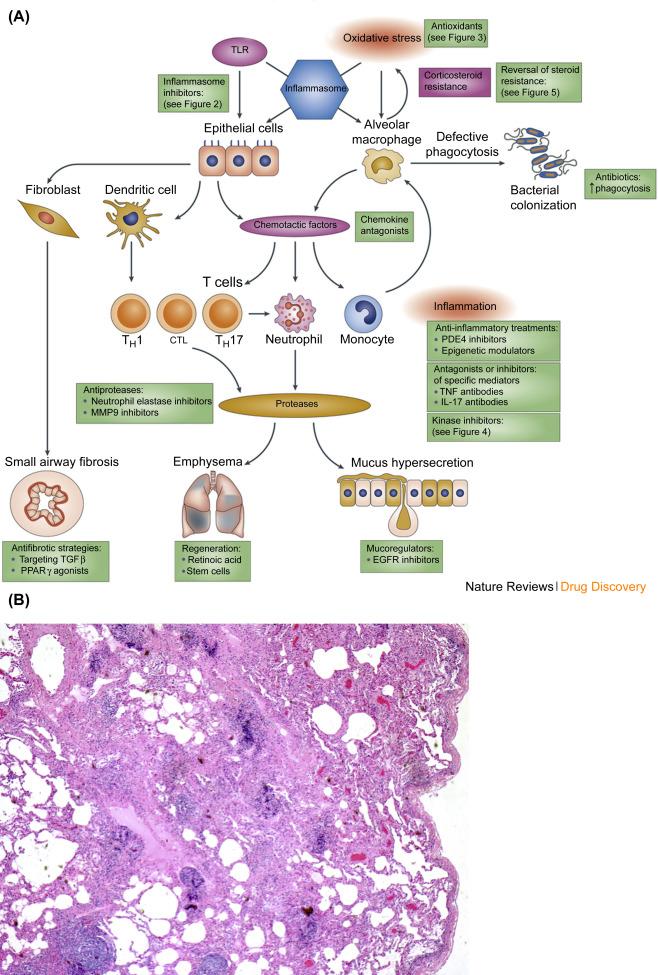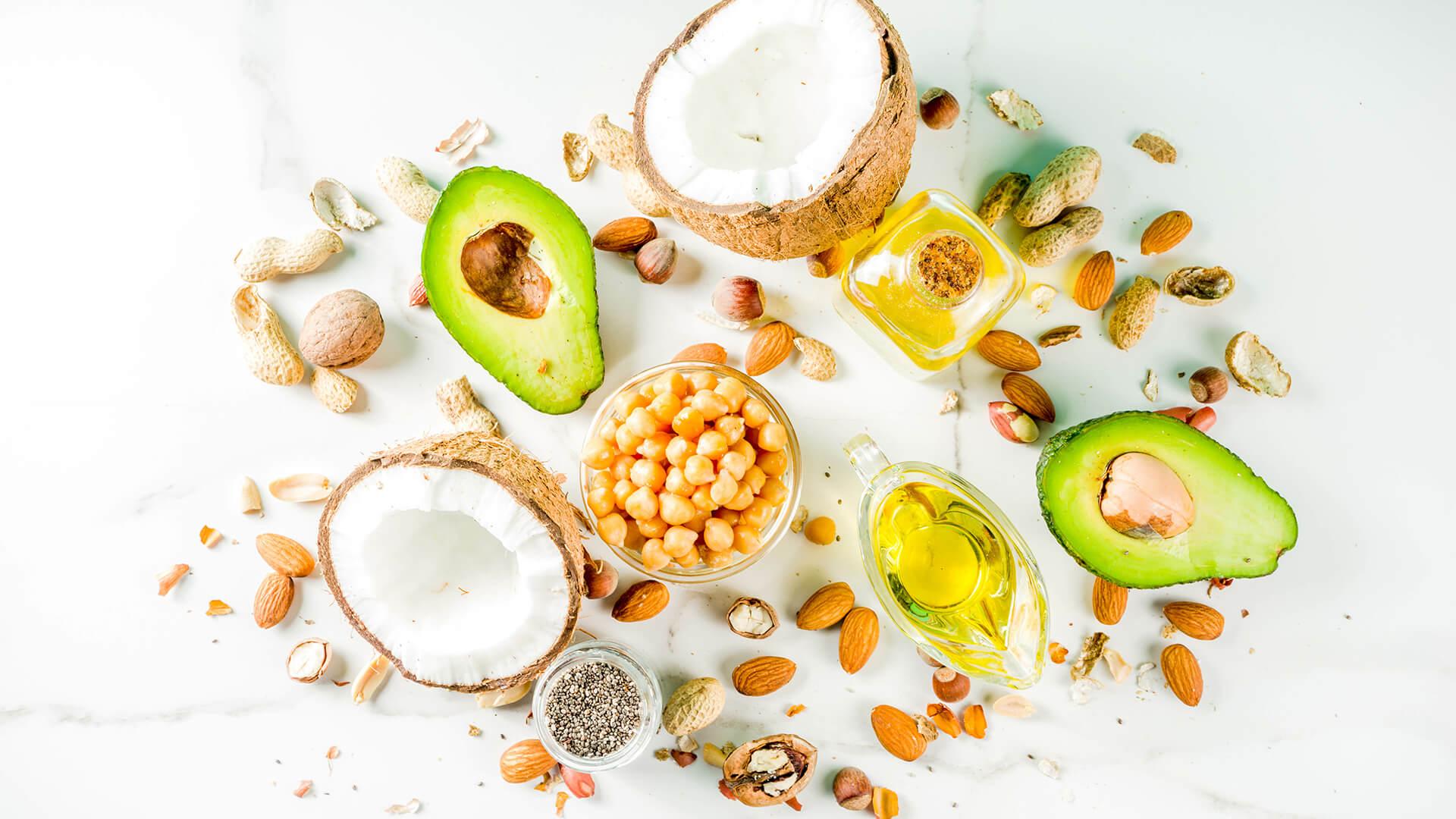Inflammation, a steadfast warrior of our immune systems, is what allows our bodies to fend off infections and heal wounds. However, lurking in the shadows is chronic inflammation, a silent nemesis that wreaks havoc on our health. From joint pain to heart disease, this persistent inflammation is responsible for a myriad of conditions that plague us. But fear not, for there is a powerful ally waiting to come to our aid – the Anti-Inflammatory Diet. Bursting with an array of vibrant, nutrient-packed foods, this eating pattern has the potential to tame the fiery chaos within our bodies. So, grab your apron, sharpen your culinary skills, and embark on a delicious journey as we explore the world of inflammation-fighting foods and the transformative power they hold.
Introduction: Understanding Chronic Inflammation and Its Impact on Health
In today’s fast-paced world, chronic inflammation has become a growing concern for many individuals. Whether it’s due to poor diet choices, stressful lifestyles, or underlying health conditions, chronic inflammation can have a significant impact on our overall well-being. Understanding the underlying causes and effects of inflammation is crucial in helping us make informed decisions about our health.
One effective approach to combating chronic inflammation is through the adoption of an anti-inflammatory diet. This type of diet focuses on consuming foods that can help reduce inflammation in the body, promoting better health and well-being. Incorporating a wide variety of nutrient-rich foods into our daily meals is key to achieving optimal results.
So, what are some of the foods you can include in an anti-inflammatory diet? Leafy greens like spinach and kale are packed with antioxidants, vitamins, and minerals that can help reduce inflammation. Fatty fish such as salmon, tuna, and mackerel are excellent sources of omega-3 fatty acids, known for their anti-inflammatory properties. Other foods like berries, nuts, and olive oil also offer anti-inflammatory benefits, making them great additions to your everyday meals. By incorporating these foods into your diet, you can create a strong foundation for combating chronic inflammation and improving your overall health.
| Food Category | Anti-Inflammatory Benefits |
|---|---|
| Leafy Greens | Rich in antioxidants and anti-inflammatory compounds |
| Fatty Fish | High in omega-3 fatty acids, known to reduce inflammation |
| Berries | Packed with antioxidants and vitamins to combat inflammation |
| Nuts | Contain healthy fats and antioxidants that fight inflammation |
| Olive Oil | Rich in monounsaturated fats and antioxidants for reducing inflammation |
Remember, adopting an anti-inflammatory diet is not a quick fix but a long-term commitment to your health. By making conscious choices and including these inflammation-fighting foods in your meals, you can take proactive steps towards reducing chronic inflammation and its impact on your overall well-being. So, why not give it a try and embark on a journey towards a healthier, more vibrant life?
Key Principles of the Anti-Inflammatory Diet: Balancing Macronutrients and Micronutrients
The Anti-Inflammatory Diet is becoming increasingly popular as an effective way to reduce chronic inflammation and improve overall health. By carefully selecting the right foods and following key principles, individuals can create a well-rounded diet that promotes balance and minimizes inflammatory responses in the body. One of the fundamental aspects of this diet is the importance of balancing macronutrients and micronutrients.
Macronutrients, including carbohydrates, proteins, and fats, are essential for providing energy and supporting bodily functions. When it comes to reducing chronic inflammation, it is crucial to choose the right types of macronutrients. Instead of relying on processed carbohydrates and unhealthy fats, the Anti-Inflammatory Diet encourages the consumption of complex carbohydrates like whole grains, lean proteins such as fish and legumes, and healthy fats like avocados and nuts. These choices provide a steady release of energy, promote satiety, and contain anti-inflammatory properties that can help combat chronic inflammation.
- Choose whole grains such as brown rice, quinoa, and whole wheat bread.
- Include lean proteins like salmon, chicken breast, and tofu in your meals.
- Incorporate healthy fats from sources like avocados, olive oil, and almonds into your diet.
Micronutrients, on the other hand, refer to essential vitamins and minerals that the body needs in small quantities for optimal functioning. These include vitamins A, C, and E, as well as minerals like zinc and selenium. By ensuring a varied and nutrient-rich diet, individuals can support their immune system and reduce inflammation. Incorporating plenty of colorful fruits and vegetables, such as berries, leafy greens, and cruciferous vegetables, is an excellent way to obtain these essential micronutrients. Additionally, herbs and spices like turmeric, ginger, and garlic are known for their anti-inflammatory properties and can be easily included in meals to further enhance the diet’s benefits.
- Include a wide range of colorful fruits and vegetables in your diet.
- Add herbs and spices like turmeric, ginger, and garlic to your meals for extra anti-inflammatory benefits.
- Consider taking supplements if you struggle to meet your daily micronutrient requirements through diet alone.

Powerful Foods to Incorporate in Your Anti-Inflammatory Diet
Foods to Incorporate in Your Anti-Inflammatory Diet
Chronic inflammation can be a silent killer, contributing to various diseases such as heart disease, diabetes, and even cancer. But fear not, there is a powerful solution to combat this looming threat – the anti-inflammatory diet. By incorporating certain foods into your daily meals, you can effectively reduce chronic inflammation and promote overall well-being. Check out these incredible superfoods that will supercharge your anti-inflammatory diet:
- Turmeric: Known as nature’s most powerful anti-inflammatory spice, turmeric contains a compound called curcumin, which fights inflammation at the molecular level. Whether used in curries, teas, or as a supplement, turmeric can provide remarkable health benefits.
- Leafy greens: Add a healthy dose of greens like spinach, kale, and Swiss chard to your plate. These veggies are packed with antioxidants that reduce inflammation and protect against chronic diseases. They are also excellent sources of vitamins A, C, and K, as well as fiber.
- Berries: Bursting with antioxidants, berries such as blueberries, strawberries, and raspberries are not only delicious but also help combat inflammation. They are low in calories, high in fiber, and can easily be incorporated into your breakfast smoothies or enjoyed as a guilt-free snack.
Your battle against chronic inflammation starts in the kitchen, and with these powerful foods in your arsenal, you can take control of your health. Remember to prioritize a well-balanced diet rich in colorful fruits, vegetables, and healthy fats to optimize your anti-inflammatory journey. Feed your body the right fuel, and watch it heal from within!

Proactive Lifestyle Changes to Enhance the Anti-Inflammatory Effects
While incorporating anti-inflammatory foods into your diet is a vital step in reducing chronic inflammation, it is important to also adopt a proactive lifestyle. By making a few simple changes, you can enhance the anti-inflammatory effects and further support your overall health. Here are some proactive lifestyle changes to consider:
- Stay Active: Engaging in regular physical activity not only helps maintain a healthy weight but also reduces inflammation in the body. Aim for at least 30 minutes of exercise most days of the week. Incorporate activities you enjoy, such as walking, cycling, or swimming.
- Prioritize Sleep: Quality sleep is essential for optimal health and well-being. Lack of sleep can contribute to inflammation. Establish a consistent bedtime routine, create a conducive sleep environment, and aim for 7-9 hours of uninterrupted sleep each night.
- Manage Stress: Chronic stress can increase inflammation levels in the body. Practice stress-reducing techniques such as meditation, deep breathing exercises, or engaging in hobbies you enjoy. It is important to find what works best for you to effectively manage and reduce stress levels.
| Food Group | Examples |
|---|---|
| Fruits | Blueberries, kiwi, pineapple, oranges |
| Vegetables | Leafy greens, broccoli, bell peppers, carrots |
| Healthy Fats | Avocado, olive oil, nuts, seeds |
| Lean Protein | Salmon, chicken breast, tofu, lentils |
| Whole Grains | Oats, quinoa, brown rice, whole wheat bread |
Remember, making small changes consistently is key to adopting a proactive lifestyle. Incorporating these lifestyle changes along with an anti-inflammatory diet will enhance the anti-inflammatory effects, allowing you to take control of your health and reduce chronic inflammation.
In Summary
As we conclude our exploration of the anti-inflammatory diet and its potential to combat chronic inflammation, we are reminded of the age-old adage, “You are what you eat.” While inflammation plays a pivotal role in our body’s defense mechanism, prolonged or excessive inflammation could lead to serious health issues. By incorporating these inflammation-fighting foods into our daily meals, we can take charge of our well-being and pave a path towards a healthier future.
Let us embark on this culinary adventure armed with an array of colorful fruits and vegetables, teeming with antioxidants and phytochemicals that battle inflammation at its core. From the vibrant oranges of citrus fruits, bursting with immune-boosting vitamin C, to the deep greens of leafy vegetables like kale and spinach, brimming with powerful anti-inflammatory compounds, nature has provided us with a cornucopia of delectable options to choose from.
As we savor the silky richness of heart-healthy omega-3 fatty acids found in salmon and trout, we also indulge in the nutty goodness of walnuts and almonds that boast anti-inflammatory properties. In our quest to reduce chronic inflammation, we tread lightly with whole grains such as brown rice and quinoa, which support our gut health and provide a steady release of energy.
Let us not forget the aromatic herbs and spices that awaken our senses and dazzle our taste buds while diminishing inflammation. The zesty character of ginger, the fiery kick of turmeric, and the comforting warmth of cinnamon all work in harmony to quell the flames of chronic inflammation.
But our journey towards a more anti-inflammatory lifestyle does not end at the dinner table. We must also embrace a holistic approach, fostering a harmonious balance between physical activity, stress management, and adequate rest. By merging these facets into our daily routine, we can unleash our body’s potential to thrive and meet inflammation head-on.
Remember, dear reader, that the anti-inflammatory diet is not a mere trend but a sustainable way of life. As we nourish our bodies from within, let us cherish the remarkable power of nature’s bounty to heal and restore. By making conscious choices and unleashing our culinary creativity, we can transform our relationship with food into an empowering journey towards optimum health and vitality.
So, embark on this gastronomic adventure, armed with knowledge and an unwavering commitment to prioritize your well-being. Embrace the wonders of the anti-inflammatory diet, weaving it seamlessly into your daily routine, and watch as your body thanks you with renewed vitality, profound balance, and a profound sense of wellness that will carry you through life’s journey.


